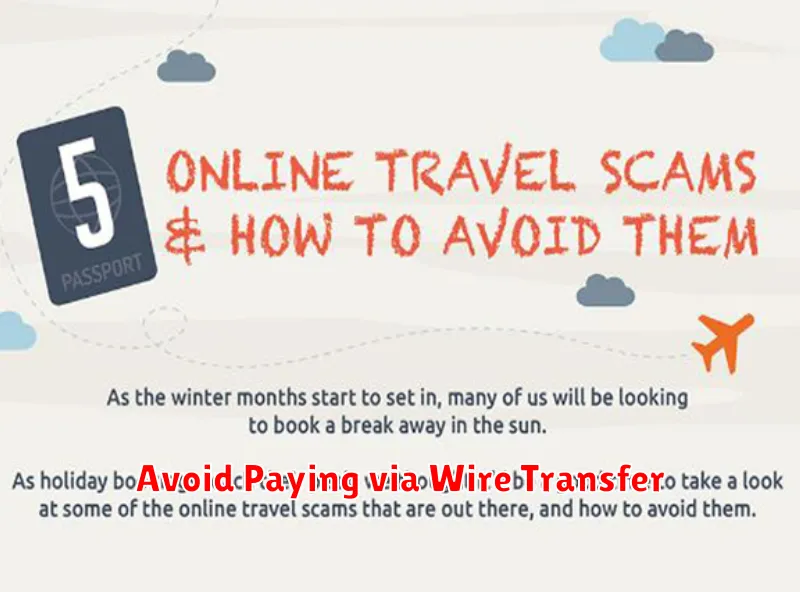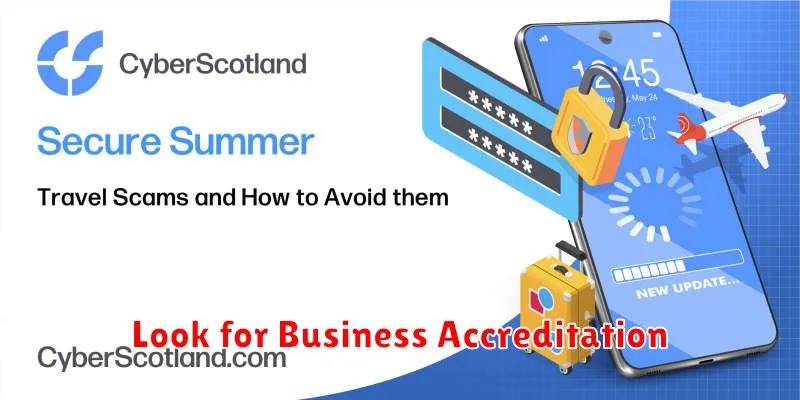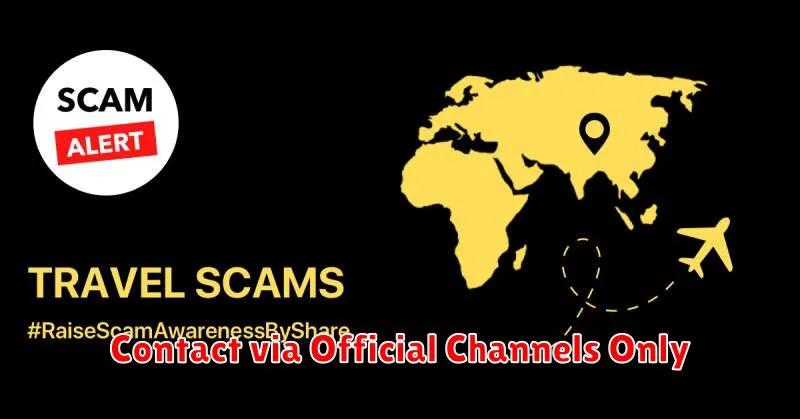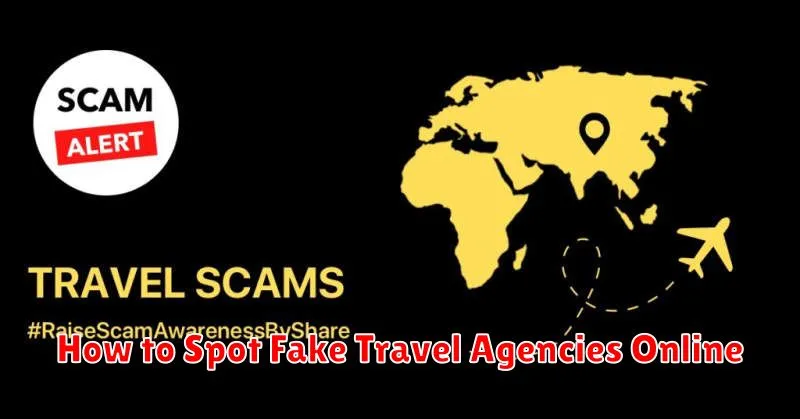Planning your dream vacation? Be wary of fake travel agencies online that can turn your dream trip into a nightmare. Online travel scams are increasingly common, making it more important than ever to be vigilant. This article provides essential tips on how to spot fake travel agencies online, helping you protect your money and ensure a smooth, enjoyable travel experience. Learn how to identify red flags, verify legitimacy, and ultimately, avoid travel agency scams.
From too-good-to-be-true deals to unprofessional websites, there are several telltale signs that can help you distinguish between legitimate travel agencies and fraudulent travel agencies. Understanding these signs is crucial for safe and secure travel planning. We’ll delve into the key indicators to watch for, empowering you to confidently book your travels with a reputable agency and avoid falling victim to online travel agency scams. Don’t risk your hard-earned money and vacation time – learn how to spot a fake travel agent today.
Why Travel Fraud Is Increasing
The rise in travel fraud can be attributed to several key factors. The increasing reliance on online booking platforms creates more opportunities for fraudulent agencies to operate undetected. Sophisticated scams often mimic legitimate websites, making it difficult for consumers to differentiate between real and fake deals.
Economic downturns also contribute to the problem. As people seek more affordable travel options, they become more vulnerable to deals that appear too good to be true. These discounted offers are often bait used by fraudulent agencies to lure in unsuspecting victims.
Furthermore, the increasingly complex nature of travel arrangements, including multiple flights, hotels, and activities, makes it harder to track and verify the legitimacy of each component. This complexity provides cover for fraudulent activities, allowing scammers to hide their deceptive practices within intricate booking processes.
Finally, the rapid adoption of new technologies, while beneficial for travelers, also presents new avenues for fraud. Scammers are quick to exploit these technologies, using social media, messaging apps, and other platforms to target potential victims with phishing scams and other fraudulent schemes.
Check for Verified Reviews
Scrutinize online reviews from various platforms. Look for verified reviews, which indicate that the reviewer actually booked through the agency. Unverified reviews are easier to fabricate.
Be wary of overly positive reviews that lack specifics. Genuine reviews often mention both positive and negative aspects of the travel experience. A consistent stream of glowing, generic reviews can be a red flag.
Check the review dates. A long history of positive reviews over several years generally suggests legitimacy. A sudden influx of positive reviews after a period of inactivity may be suspicious.
Avoid Paying via Wire Transfer

One of the biggest red flags when dealing with an online travel agency is a request for payment via wire transfer. Wire transfers are virtually untraceable and offer little to no recourse for you if the agency turns out to be fraudulent. Once the money is gone, it’s almost impossible to recover.
Legitimate travel agencies typically accept credit cards, debit cards, and other secure payment methods that offer buyer protection. These methods allow you to dispute charges if the services aren’t delivered as promised. Opting for secure payment methods significantly reduces your risk when booking travel online.
If an agency insists on wire transfer, treat it as a serious warning sign and consider looking for another provider. The convenience of wire transfers does not outweigh the substantial risk of losing your money to a scam.
Look for Business Accreditation

Reputable travel agencies often hold accreditations from recognized organizations. These accreditations demonstrate a commitment to professional standards and ethical business practices. Check if the agency is accredited by organizations like the International Air Transport Association (IATA), the American Society of Travel Advisors (ASTA), or similar organizations in their respective countries.
Accreditation provides a layer of consumer protection. Accredited agencies are typically bound by certain rules and regulations, and often offer dispute resolution services should issues arise. Verifying accreditation is a crucial step in ensuring the legitimacy of an online travel agency.
You can usually find information about accreditation displayed on the agency’s website, often in the “About Us” section or the footer. Look for logos or mentions of affiliations. If you are unsure, you can also contact the accrediting organizations directly to verify the agency’s membership.
Contact via Official Channels Only

Legitimate travel agencies conduct business through established channels. Verify contact information by cross-referencing it with details found on the agency’s official website.
Be wary of agencies relying solely on social media or generic email addresses. Official communication typically uses professional email addresses associated with the company’s domain name.
If an agency primarily uses social media, verify their official accounts. Look for verification badges and a history of consistent, professional posting. Avoid engaging with accounts that appear recently created or lack substantial activity.
Scrutinize contact information provided on the website. Check for a physical address, a business phone number, and a professional email address. A lack of these details is a significant red flag.
Warning Signs of Fraudulent Sites
When booking travel online, be wary of websites exhibiting these red flags, which may indicate fraudulent activity.
Unrealistic Prices
Offers that seem too good to be true often are. Significantly lower prices than competitors should raise immediate suspicion. Fraudulent sites often lure victims with unbelievably cheap deals.
Poor Website Design
Look for unprofessional design, including spelling and grammatical errors, low-quality images, and a lack of contact information. A legitimate business invests in a professional online presence.
Limited Contact Information
Be wary of sites that only offer a web form for contact and lack a physical address, phone number, or direct email address. This makes it difficult to reach them if problems arise.
High-Pressure Sales Tactics
Limited-time offers, constant pop-ups, and pressure to book immediately can be signs of a scam. Legitimate businesses allow you time to consider your purchase.

